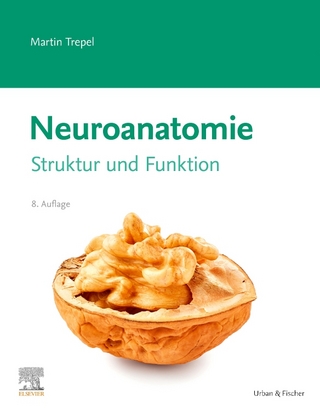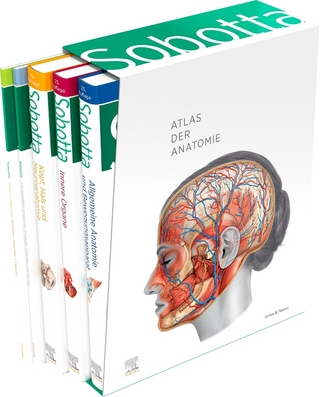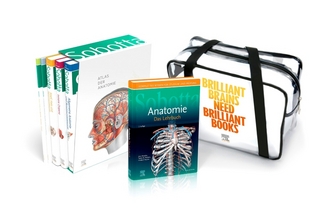
Experiential Anatomy
Handspring Publishing Limited (Verlag)
978-1-913426-21-7 (ISBN)
In Experiential Anatomy as Therapy, Leila draws from over 30 years of experience educating movement professionals to teach embodied movement as therapy.
The carefully selected practices presented in this book create therapeutic potential by stimulating awareness and building skills that challenge habitual patterns. In the process of cultivating interoceptive awareness, self-knowledge and self-compassion are reinforced. In this approach, students learn to connect to deeper presence and inner resources that empower them to become active participants in their own healing process. The paradox of experiential anatomy is that working with individual parts can lead to radical shifts in experiencing inherent wholeness.
The first chapters explain the principles and framework for teaching experiential anatomy as a tool for transformation. The yogic model of the koshas is introduced as foundational to experiential anatomy as therapy and as an explanation for the energetic, emotional, mental and spiritual effects often generated by physical practices. In subsequent chapters, concise anatomical information is presented, then embodied through somatic explorations that strengthen a felt-sense of anatomical parts and their connection to the whole. This new learning is then integrated into yoga poses and everyday activities like sitting, walking and reaching. The framework of “learn it, feel it, heal it” offers an accessible approach to develop both personal awareness and the knowledge to teach experiential anatomy as therapy. Each chapter offers therapeutic applications to assist movement professionals in integrating experiential anatomy with their existing therapeutic movement resources. Chapters conclude with koshic contemplations to deepen subtle multidimensional aspects of the somatic learning.
Although Leila uses yoga therapy as the platform for integration of experiential anatomy, the approach and somatic explorations in this book apply equally to any movement professional interested in embodiment and transformation through movement. Physiotherapists, kinesiologists, bodyworkers, yoga and Pilates teachers, personal trainers and somatic practitioners will all benefit from this book personally and professionally. Videos recorded by the author enhance the experiential practices.
Visit www.leilastuart.com
Leila Stuart BA, LLB, C-IAYT is an international experiential anatomy and yoga therapy teacher, online educator and conference presenter. She co-authored Pathways to a Centered Body: Gentle Yoga Therapy for Core Stability, Healing Back Pain and Moving with Ease with Donna Farhi in 2017. She is also a Registered Massage Therapist specializing in neuromuscular and craniosacral therapy and has practiced and taught yoga for over 40 years. In her dedicated yoga therapy studio near Vancouver, BC, she attracts students with a degree of pain or disability not generally addressed in regular yoga classes. As a teacher of teachers, Leila developed and taught an innovative Yoga Therapist training for 15 years. The course combined experiential anatomy, somatic repatterning and embodiment of the deeper teachings of yoga as pathways to self-healing. She now teaches this comprehensive body of work internationally. Leila’s work draws from various movement disciplines including Yoga, Embodied Practice, Sensory Awareness, Body Mind Centering and Feldenkrais. As a teacher, Leila guides students to cultivate an embodied experience of their own anatomy through interoceptive awareness and somatic inquiry. By developing a felt-sense of their living anatomy and accessing inherent body wisdom, students become active participants in their own healing process. The physical body then becomes the doorway to transformation and living from the deepest self. With a deep love and intuitive knowledge of experiential anatomy, Leila specializes in translating academic information into somatic awareness and life-changing experience. www.leilastuart.com
Introduction
Chapter 1 The Groundwork
Chapter 2 The Teaching Model
Chapter 3 Opening to Breath, Opening to Life
Chapter 4 Organomics: The Organ System
Chapter 5 The Lower Limb: Standing on Two Feet
Chapter 6 The Supportive Psoas
Chapter 7 Pelvic Integrity
Chapter 8 The Cosmic Spine
Chapter 9 The Head and Neck: Freedom and Stability
Chapter 10 The Shoulder Girdle: Giving and Receiving
Chapter 11 The Fascial System: Tying It All Together
| Erscheinungsdatum | 20.07.2024 |
|---|---|
| Sprache | englisch |
| Maße | 188 x 251 mm |
| Gewicht | 694 g |
| Themenwelt | Sachbuch/Ratgeber ► Gesundheit / Leben / Psychologie ► Familie / Erziehung |
| Studium ► 1. Studienabschnitt (Vorklinik) ► Anatomie / Neuroanatomie | |
| ISBN-10 | 1-913426-21-1 / 1913426211 |
| ISBN-13 | 978-1-913426-21-7 / 9781913426217 |
| Zustand | Neuware |
| Informationen gemäß Produktsicherheitsverordnung (GPSR) | |
| Haben Sie eine Frage zum Produkt? |
aus dem Bereich


